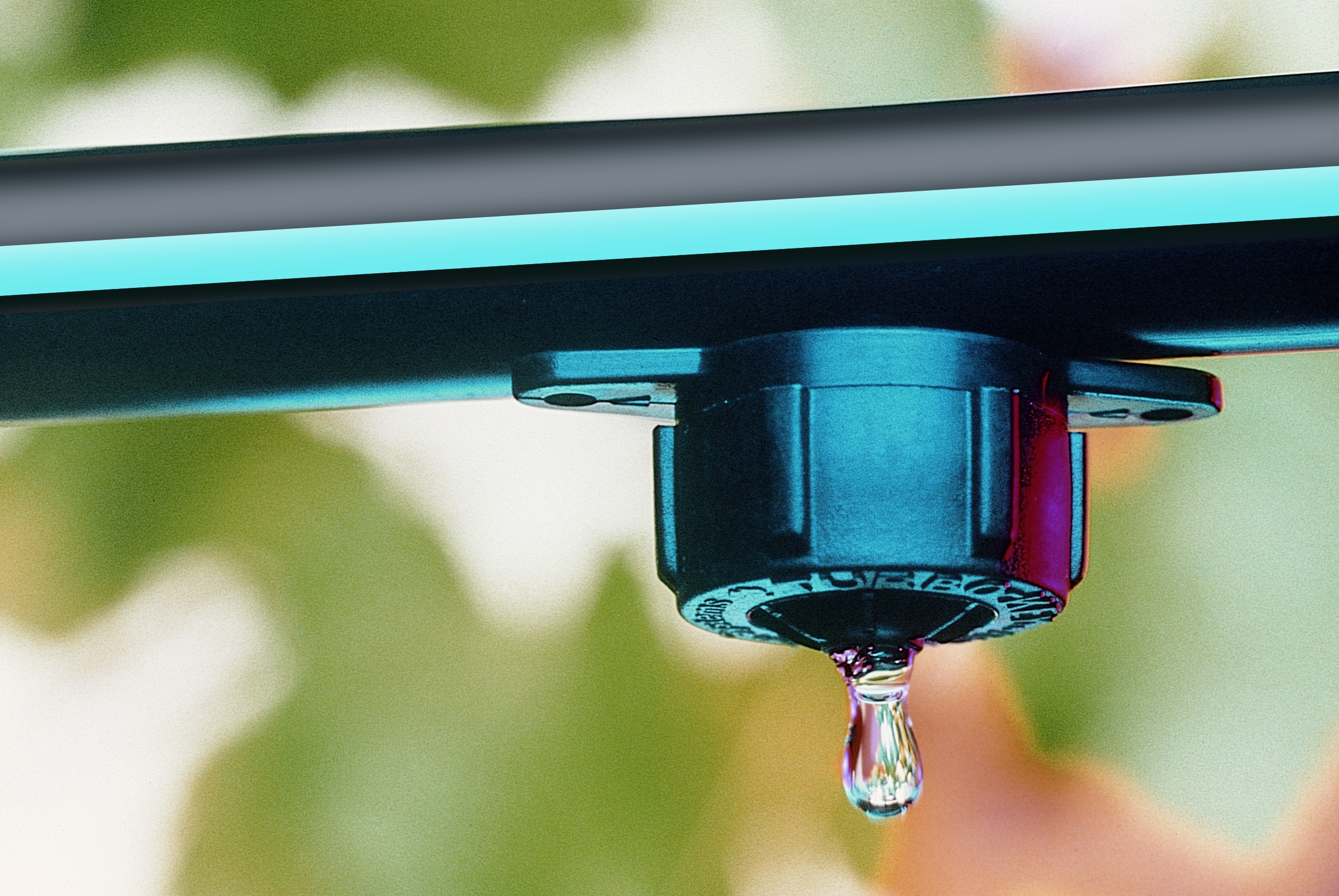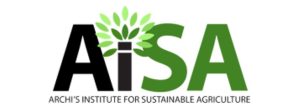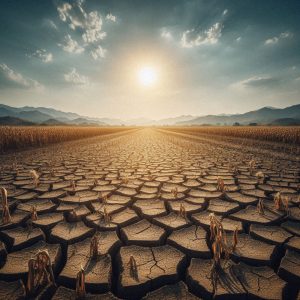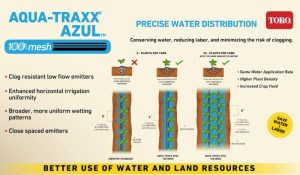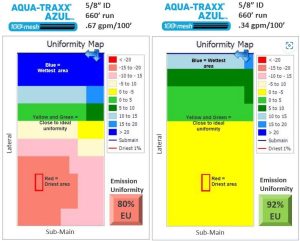- Improved crop yield and quality. Water and nutrients are spoon-fed to the crop uniformly and on the desired schedule.
- Water conservation. Drip irrigation helps stretch limited water supplies by reducing water runoff, deep percolation and/or over-irrigation due to poor application uniformity.
- Reduced costs. Water, fertilizer, energy, labor, chemicals, weeding, insurance, and field operations tend to cost less compared to alternative irrigation technologies.
- Improved logistics. Because crop wheel rows remain dry with drip irrigation, drip fields are typically more accessible regardless of the irrigation schedule.
- Reduced disease. Since water is not applied within the plant canopy, humidity and associated disease problems are reduced. Reduced puddling can also decrease the opportunity for E. coli to grow.
visit www.dripirrigation.org to learn more.

